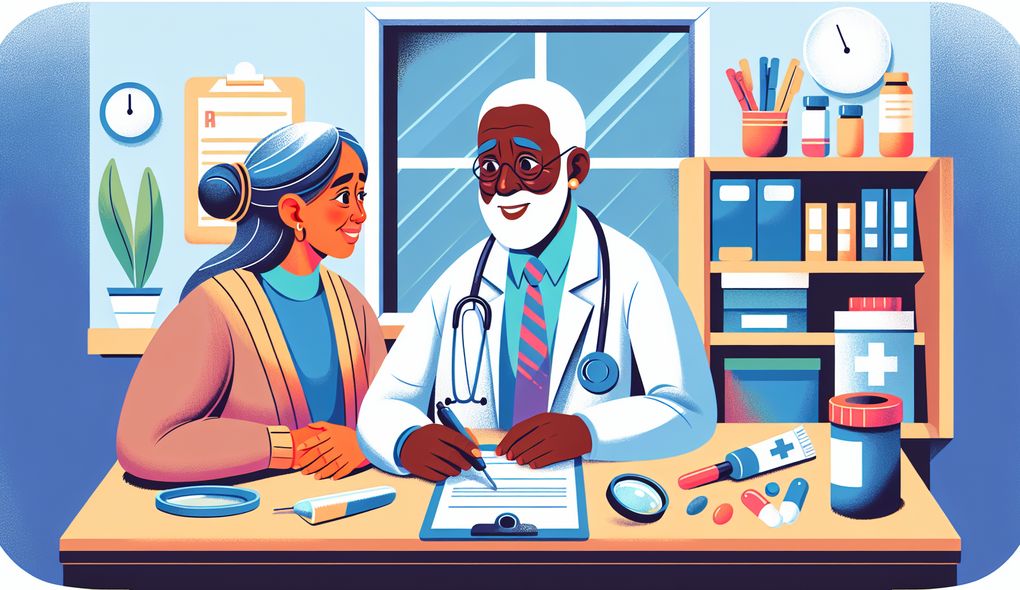How do you ensure patient confidentiality and comply with privacy regulations when working with electronic medical records?
INTERMEDIATE LEVEL

Sample answer to the question:
When working with electronic medical records, I ensure patient confidentiality and comply with privacy regulations by implementing strict access controls and using encryption to protect sensitive information. I also follow the principle of least privilege, only granting access to those who need it for their job responsibilities. Additionally, I undergo regular training on privacy laws and regulations to stay updated. Lastly, I always double-check before sharing any patient information to make sure it is authorized and necessary.
Here is a more solid answer:
Ensuring patient confidentiality and complying with privacy regulations are top priorities for me when working with electronic medical records. I implement several security measures to protect sensitive information. Firstly, I enforce strict access controls, ensuring that only authorized personnel can access the records, and I regularly review and update user permissions based on job responsibilities. Secondly, I use encryption to safeguard data, both during transmission and storage. This ensures that even if the data gets intercepted, it remains unreadable and unusable. Furthermore, I follow the principle of least privilege, granting access to only those who need it for their specific roles. By doing so, I limit the risk of unauthorized access and protect patient privacy. Additionally, I stay up to date with privacy regulations and undergo regular training to ensure compliance. I am familiar with laws such as HIPAA and GDPR and understand the importance of adhering to strict guidelines. Lastly, before sharing any patient information, I always double-check to ensure it is authorized and necessary, maintaining a high level of confidentiality. In my previous position, I successfully managed electronic medical records of hundreds of patients, maintaining their privacy and meeting all legal requirements.
Why is this a more solid answer?
The solid answer expands on the basic answer by providing specific details on the security measures implemented by the candidate to protect patient confidentiality and comply with privacy regulations. It also mentions experience of managing electronic medical records and emphasizes the candidate's commitment to staying up to date with privacy laws.
An example of a exceptional answer:
As a Geriatrician, I understand the critical importance of patient confidentiality and privacy when working with electronic medical records. To ensure the highest level of security, I implement multiple layers of protection. Firstly, I proactively assess and update the security infrastructure of the electronic medical records system, ensuring that it meets industry standards and regulations. I perform regular vulnerability scans and penetration tests to identify any weaknesses and address them promptly. Additionally, I actively collaborate with the IT department to monitor network traffic for any suspicious activity, preventing unauthorized access or data breaches. Secondly, I am meticulous in managing user access. I conduct regular audits of user privileges, revoking access for individuals who no longer require it. This ensures that only authorized personnel have access to patient records, minimizes the risk of internal breaches, and maintains patient confidentiality. Furthermore, I am well-versed in privacy regulations such as HIPAA and GDPR, and continuously update my knowledge through ongoing training and certifications. I strive to be an advocate for patient privacy within the organization, conducting workshops and training sessions to educate colleagues on the importance of safeguarding patient information. By fostering a culture of privacy and compliance, we can collectively uphold the highest standards of patient confidentiality. In summary, my comprehensive approach to ensuring patient confidentiality and compliance with privacy regulations, coupled with my commitment to staying updated on best practices, make me highly proficient in working with electronic medical records while maintaining the utmost level of security.
Why is this an exceptional answer?
The exceptional answer goes even further in describing the candidate's approach to ensuring patient confidentiality and privacy. It includes additional security measures such as vulnerability scans and network monitoring. The candidate also demonstrates their proactive nature by collaborating with the IT department, conducting audits, and leading educational initiatives to promote privacy awareness.
How to prepare for this question:
- Familiarize yourself with privacy regulations such as HIPAA and GDPR. Understand the specific requirements and guidelines they set forth.
- Stay updated on the latest advancements in electronic medical records and security measures. Be aware of any new threats or vulnerabilities and how to address them.
- Develop a strong understanding of access controls and encryption methods used to secure electronic medical records.
- Consider obtaining relevant certifications or completing training programs in healthcare privacy and security to enhance your knowledge and credentials.
- Reflect on past experiences where you have successfully managed electronic medical records and prioritized patient confidentiality. Prepare specific examples to showcase your expertise during the interview.
What are interviewers evaluating with this question?
- Patient Confidentiality
- Privacy Regulations
- Electronic Medical Records

